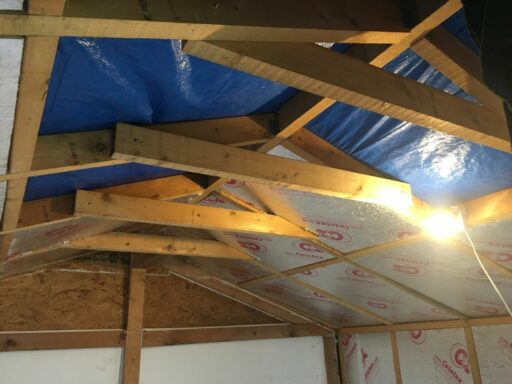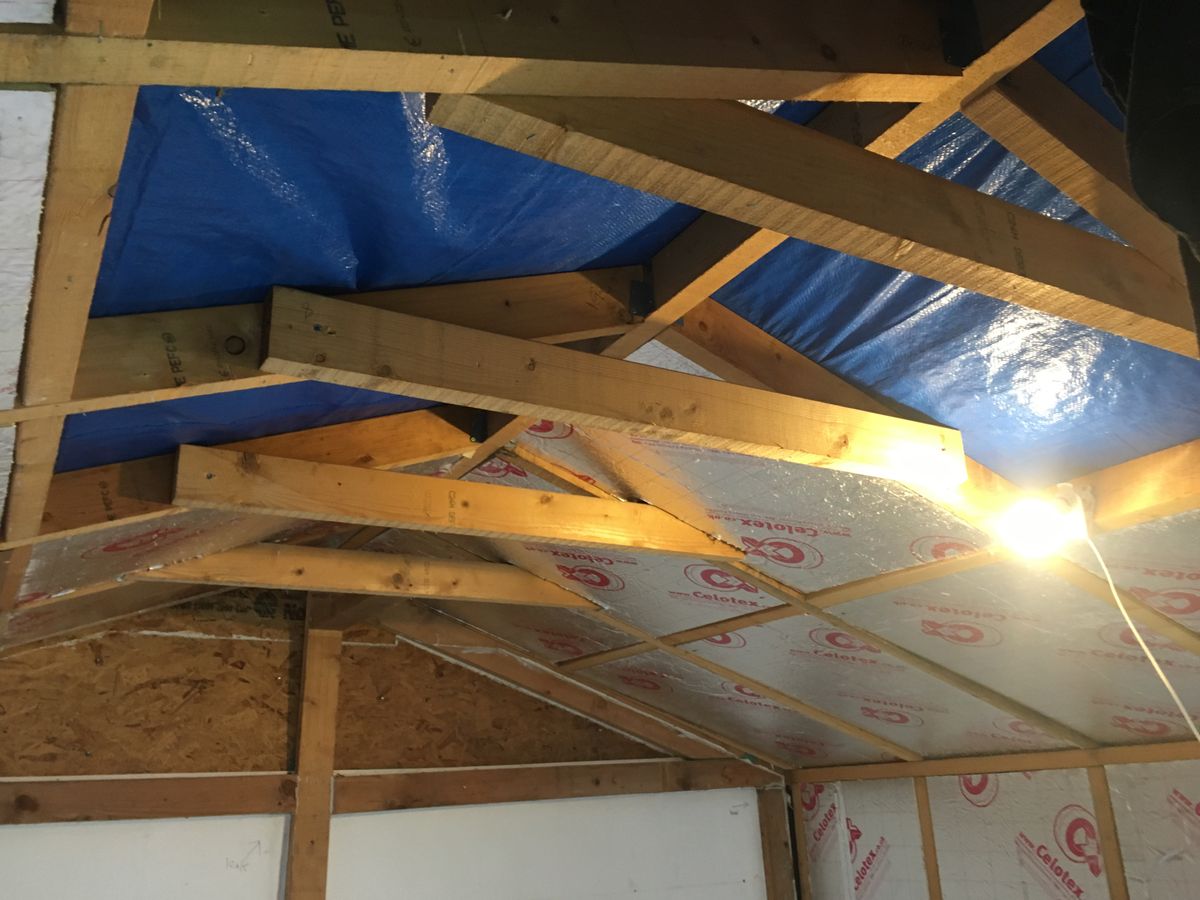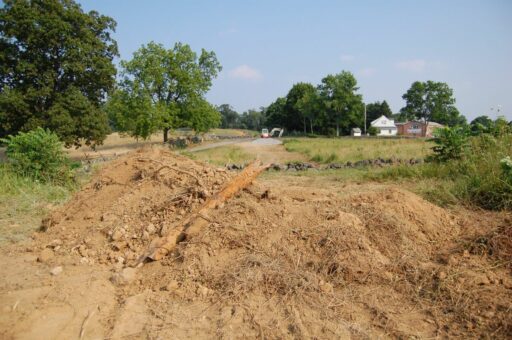Selecting the right commercial insulation contractors is crucial for the efficiency and cost-effectiveness of your building project. With a myriad of options available, it’s important to understand your insulation needs, identify the benefits of different insulation types like spray foam, and ensure you choose a contractor with the right experience and credentials. This guide aims to provide you with a comprehensive approach to finding the perfect insulation partner for your commercial property.
Key Takeaways
- Assessing your commercial property’s insulation needs and signs of inadequate insulation are the first steps to determining the right insulation solution.
- Selecting a contractor with the necessary licensing, certifications, and experience with similar projects is essential for a successful insulation project.
- Spray foam insulation offers significant benefits such as energy efficiency, cost savings, and durability, making it a superior choice for many commercial buildings.
- A thorough initial assessment, understanding of insulation options, and a focus on quality and craftsmanship are key to executing a successful insulation project.
- Post-installation, regular maintenance, check-ups, and energy audits are vital to ensure the continued performance and efficiency of your insulation.
Understanding Commercial Insulation Needs

Assessing Your Property’s Insulation
When it comes to assessing your property’s insulation, it’s crucial to consider a variety of factors that contribute to thermal efficiency and comfort. Fluctuating temperatures, high energy bills, and discomfort are telltale signs that your insulation may require an upgrade. A thorough inspection for drafts, uneven heating or cooling, and moisture issues is essential in pinpointing areas of concern.
A professional energy audit is a definitive step in identifying specific insulation deficiencies and planning for necessary improvements.
To systematically evaluate your property’s insulation, consider the following checklist:
- Building Envelope: Check the construction materials, insulation levels, and R-value of walls, roof, and floors.
- Windows and Doors: Examine the size, type, orientation, glazing types, and thermal properties.
Remember, each property has unique insulation requirements. Tailoring insulation services to your building’s needs can enhance structural integrity and lead to significant energy cost reductions.
Signs of Inadequate Insulation
Recognizing the signs of inadequate insulation is crucial for maintaining a comfortable and energy-efficient commercial space. High energy bills and uncomfortable temperature fluctuations are often the first indicators that your building’s insulation may not be performing optimally. Other symptoms include:
- Drafts or cold spots throughout the building
- Uneven heating or cooling in different areas
- Visible condensation or signs of moisture
Inadequate insulation can lead to increased operational costs and a less hospitable environment for occupants. It’s essential to address these signs promptly to avoid further complications.
If you’re noticing any of these issues, it’s advisable to consult with a professional for a detailed energy audit. This process will help pinpoint the specific areas where insulation is lacking and provide a roadmap for necessary improvements.
The Importance of Energy Audits
Conducting an energy audit is a critical step in understanding and improving your building’s energy consumption. Professional energy audits offer a comprehensive analysis, identifying inefficiencies and providing actionable recommendations. These audits can reveal the true performance of your current HVAC system and pinpoint areas where upgrades can lead to significant energy savings.
Energy audits are not just about identifying problems; they are about forecasting the future. By estimating potential energy savings and payback periods, property owners can make informed decisions that align with their financial and environmental goals. An energy audit can serve as a roadmap for enhancing a property’s value and operational efficiency.
An energy audit is an investment in your property’s performance and sustainability, providing clarity on where to allocate resources for the greatest impact.
Understanding the correlation between an inefficient HVAC system and rising energy costs is essential. With the insights gained from an energy audit, commercial property owners can evaluate system options and requirements, ensuring that any investment made contributes to long-term savings and efficiency.
Choosing the Right Insulation Contractor

Licensing and Certifications
When selecting a commercial insulation contractor, it is crucial to verify that they hold the necessary licenses and certifications. These credentials are not just formalities; they are assurances of the contractor’s expertise and compliance with industry standards. A licensed contractor has typically undergone a rigorous process that includes meeting specific experience requirements, obtaining insurance, and passing a comprehensive test that covers trade practices, codes, and regulations.
The right certifications can bring legitimacy to a contractor’s business, indicating proficiency in installing specific products or systems.
Additionally, look for contractors who have certifications from reputable organizations, such as North American Technician Excellence (NATE) or Building Performance Institute (BPI). These certifications are indicators of a contractor’s commitment to quality and expertise in their field.
Here is a checklist to help you ensure that a contractor meets the necessary licensing and certification criteria:
- Verify state and local licenses relevant to your region.
- Check for industry-recognized certifications (e.g., NATE, BPI).
- Confirm that the contractor has insurance coverage.
- Inquire about any additional certifications related to specific products or systems they may install.
Experience with Similar Projects
When selecting a contractor for your commercial insulation needs, it’s crucial to consider their experience with similar projects. A contractor’s history can give you valuable insights into their capability to handle your specific requirements. Look for a contractor with a portfolio of projects that are similar in scale and complexity to yours. This ensures they are familiar with the challenges and best practices specific to your type of building.
- Assess the contractor’s experience with projects of comparable size and usage.
- Verify the team’s qualifications and their approach to project management.
- Prioritize contractors who demonstrate a collaborative approach and willingness to work closely with you.
It’s also beneficial to review customer stories or case studies provided by the contractor. These can highlight their problem-solving skills and ability to deliver projects on time and within budget. A contractor’s financial stability and proper insurance are also key factors to consider, as they reflect the contractor’s reliability and commitment to safety and compliance.
Ensuring that the contractor you choose has a proven track record in handling commercial insulation projects similar to yours will greatly contribute to the success of your building project.
Evaluating Past Performance and References
When selecting a commercial insulation contractor, it’s crucial to assess their past performance and references. This evaluation can provide insight into their reliability, quality of work, and customer satisfaction. Begin by requesting a list of previous projects that are similar in scope to yours. This will give you an idea of their experience and expertise in the field.
- Positive Customer Reviews and References: Look for testimonials, reviews, and references from previous clients to gauge their performance and reputation. Additionally, check if they hold the necessary certifications and licenses.
It’s not just about the numbers; the feedback from past clients can reveal the contractor’s commitment to quality and ethical practices.
- Reference and Certification Verification: Ensure that you verify the contractor’s references and certifications. This step is vital to confirm their credibility and expertise before making a final decision.
The Benefits of Spray Foam Insulation

Energy Efficiency and Cost Savings
Spray foam insulation is renowned for its superior energy efficiency, which can lead to substantial cost savings for commercial buildings. By creating a more consistent indoor temperature, the need for heating and cooling is significantly reduced, resulting in lower energy consumption.
- Total cost of ownership should include not just the initial investment but also the long-term savings from reduced utility bills.
- Estimating the potential savings from energy efficiency is crucial in understanding the true value of the insulation.
The right insulation can transform a building’s energy profile, leading to a decrease in operational costs and an increase in property value.
It’s important to work with a contractor who understands the nuances of energy-efficient materials and can provide tailored solutions. This partnership can ensure that the insulation not only meets current needs but also anticipates future maintenance considerations and contributes to long-term savings.
Creating an Airtight Seal
Spray foam insulation stands out for its ability to create an airtight seal that traditional insulation methods struggle to achieve. This seal is critical in minimizing air leakage, which can account for a significant amount of energy waste in commercial buildings.
- Fills gaps and crevices
- Reduces air infiltration
- Enhances overall building energy efficiency
By forming a continuous barrier, spray foam insulation not only improves thermal performance but also contributes to the structural integrity of the building. It’s a comprehensive solution that addresses multiple aspects of building performance.
Commercial spray foam insulation is particularly effective in areas prone to air leaks, such as around windows, doors, and where walls meet roofs. By sealing these vulnerable points, businesses can experience improved indoor air quality and a more controlled climate, leading to a more comfortable environment for occupants.
Longevity and Durability
Spray foam insulation is renowned for its longevity that last for years to come, offering a sustainable solution for commercial buildings. Unlike traditional insulation materials that may sag or settle over time, spray foam maintains its shape and effectiveness, reducing the need for frequent replacements or upgrades.
The future of commercial construction is green, and spray foam insulation is paving the way with its durable properties.
The resistance of spray foam to common deteriorative factors such as moisture, mold, and pests contributes significantly to its long lifespan. Moreover, its ability to withstand UV radiation ensures that the insulation does not degrade prematurely under the sun’s harsh rays, a critical consideration for roofing applications.
Regular maintenance can further enhance the durability of spray foam insulation. Simple inspections can help identify any potential issues early on, ensuring that the insulation continues to perform optimally for an extended period.
Executing the Insulation Project

The Initial Assessment Process
The initial assessment process is a critical first step in executing your insulation project. It involves a thorough examination of the current state of your building’s insulation and identifying areas that require attention. A comprehensive assessment ensures that the insulation will be tailored to your building’s specific needs.
During this phase, contractors will typically perform the following tasks:
- Review of existing building plans and specifications
- On-site inspection of the building’s envelope
- Identification of potential problem areas
- Recommendations for insulation types and materials
The goal of the initial assessment is to create a clear and detailed plan for the insulation project, which will serve as a roadmap for both the contractor and the building owner.
It is essential to choose a contractor with high-quality workmanship, licenses, and insurance. Assess project scope and needs before selecting a contractor to ensure satisfaction and trust in achieving your vision.
Understanding Insulation Options
When it comes to insulating a commercial building, understanding the various insulation options available is crucial. Each material has its own set of properties, benefits, and considerations that must be taken into account. For instance, spray foam creates an airtight seal and is known for its energy efficiency, while materials like fiberglass and mineral wool are commonly used for their thermal and acoustic insulation properties.
It’s essential to match the insulation material to the specific needs of the building to ensure optimal performance and cost-effectiveness.
Here’s a quick overview of some common insulation materials:
- Spray foam: High energy efficiency, creates an airtight seal.
- Fiberglass: Widely used, good thermal and sound insulation.
- Mineral wool: Fire resistant, excellent thermal and sound insulation.
- Rigid panels: Good for flat surfaces, high insulating value.
- Structural insulated panels: Prefabricated panels that provide both structure and insulation.
Selecting the right insulation material is a decision that will affect the building’s energy consumption, comfort, and even its environmental impact. Therefore, it’s advisable to consult with a professional who can provide guidance based on the building’s location, design, and usage.
Ensuring Quality and Craftsmanship
Ensuring the quality and craftsmanship of your commercial insulation project is paramount. Select a contractor who prioritizes quality over speed, and who has a proven track record of adhering to high standards. Quality assurance guarantees and manufacturer warranties are indicators of a contractor’s commitment to excellence.
It’s essential to have a clear understanding of the contractor’s quality control procedures. This includes how they manage project timelines without compromising on the fine details that contribute to the longevity and effectiveness of the insulation.
Here are some steps to ensure quality and craftsmanship in your insulation project:
- Verify the contractor’s quality assurance policies.
- Inspect the materials to ensure they meet industry standards.
- Discuss the project timeline and ensure it allows for meticulous work.
- Request regular updates and reports on project progress.
- Conduct a final walk-through with the contractor to address any concerns.
After Installation: Ensuring Continued Performance

Maintenance and Upkeep of Insulation
Proper maintenance and upkeep are essential to maximize the performance and lifespan of your building’s insulation. Regular maintenance is not only about preserving the material’s integrity but also about ensuring that your property remains energy-efficient and comfortable for occupants.
- Schedule routine inspections to check for any signs of wear or damage.
- Address minor repairs promptly to prevent larger issues.
- Keep an eye on energy bills as an indicator of insulation performance.
Regular maintenance is crucial for roofing longevity. Local expertise in roofing contractors ensures compliance, efficiency, and cost-effectiveness. Criteria for choosing a professional include qualifications and reputation.
By adhering to a consistent maintenance schedule, you can avoid the pitfalls of neglect, such as increased energy costs and potential system failures. Remember, an ounce of prevention is worth a pound of cure when it comes to insulation care.
Regular Check-Ups and Energy Audits
To maintain the efficiency and longevity of your building’s insulation, regular check-ups and energy audits are essential. These evaluations help identify areas where insulation performance may be degrading or where additional energy-saving opportunities exist.
Professional energy audits go beyond a simple inspection, utilizing advanced tools and techniques to provide a comprehensive analysis of your building’s energy usage. Recommendations from these audits can lead to significant improvements in system performance and energy savings.
- Utility Bill Analysis: Review utility bills for unusual increases in energy consumption.
- System Breakdowns: Keep a record of system repairs and breakdowns.
- Temperature Inconsistencies: Monitor for uneven temperatures and difficulty maintaining setpoints.
Ensuring that your insulation continues to perform optimally requires a proactive approach. Regular maintenance, such as filter changes and coil cleaning, can prevent system inefficiencies and prolong the life of your HVAC system.
Efficiency evaluations during inspections can lead to reduced operational costs and a smaller environmental footprint. It’s not just about compliance; it’s about embracing a sustainable future for your property.
Addressing Future Insulation Needs
Ensuring that your building’s insulation remains effective over time is crucial for maintaining energy efficiency and comfort. Regularly addressing future insulation needs can prevent costly energy waste and extend the lifespan of your building’s envelope. It’s important to stay proactive by scheduling periodic reviews of your insulation’s performance.
- Monitor changes in energy bills to detect potential insulation issues.
- Keep an eye on the physical condition of insulation, looking for signs of wear or damage.
- Consider the evolving building codes and advancements in insulation technology that may offer better performance.
By staying ahead of insulation maintenance and improvements, you can ensure a tailored and effective solution for your commercial space.
Remember, insulation is not a set-and-forget component of your building. It requires ongoing attention to adapt to changes such as climate considerations and infrastructure limitations. Addressing these needs promptly can help avoid unexpected costs and ensure your building remains a comfortable, energy-efficient space for its occupants.
Conclusion
Selecting the right commercial insulation contractor is a critical decision for the success and efficiency of your building project. It’s essential to partner with a team that not only understands the unique insulation needs of your commercial property but also brings expertise, quality materials, and a commitment to energy efficiency to the table. As you conclude your search, remember to prioritize contractors with the necessary licenses, certifications, and experience with similar projects. By doing so, you ensure that your investment in insulation pays off in the form of reduced energy costs, enhanced structural integrity, and a comfortable environment for occupants. Connect with us today to discuss how our tailored insulation solutions can meet your specific requirements and set your commercial space up for long-term success.
Frequently Asked Questions
How do I assess my property’s commercial insulation needs?
Assessing the need for insulation in your commercial property involves considering various factors such as fluctuating temperatures, high energy bills, discomfort within the space, drafts, uneven heating or cooling, and signs of moisture. A professional energy audit can help identify specific areas that require insulation improvement.
What are the signs of inadequate insulation in a commercial building?
Signs of inadequate insulation include noticeable temperature fluctuations, high utility bills, drafts, uneven heating or cooling throughout the building, and the presence of moisture or condensation. These issues may indicate that your insulation needs to be assessed and potentially upgraded.
Why is it important to choose a licensed and certified insulation contractor?
Choosing a licensed and certified contractor ensures that they hold valid state and local licenses and have the necessary expertise, as demonstrated by certifications like North American Technician Excellence (NATE) or Building Performance Institute (BPI). This provides assurance of quality workmanship and adherence to industry standards.
What benefits does spray foam insulation offer for commercial buildings?
Spray foam insulation offers several benefits, including superior energy efficiency and cost savings, by creating an airtight seal that fills gaps and crevices, preventing air leakage. It also provides longevity and durability, making it a long-term investment for commercial properties.
How can I ensure quality and craftsmanship when executing an insulation project?
Ensure quality and craftsmanship by selecting a reputable commercial insulation contractor with a track record of excellence. Look for contractors who use high-quality materials and employ seasoned professionals who combine expertise with modern technology to deliver superior insulation solutions.
What maintenance is required after installing commercial insulation?
After installation, regular maintenance and check-ups are crucial to ensure continued performance. This includes periodic energy audits to assess the effectiveness of the insulation and addressing any future insulation needs that may arise due to changes in the building or its usage.





